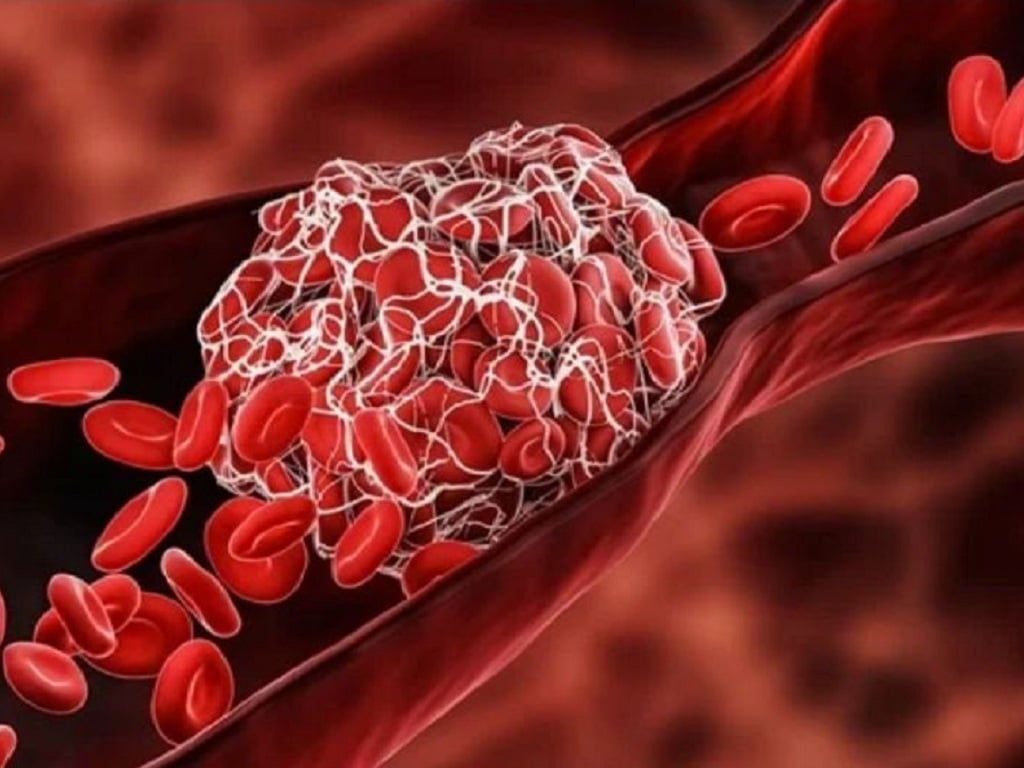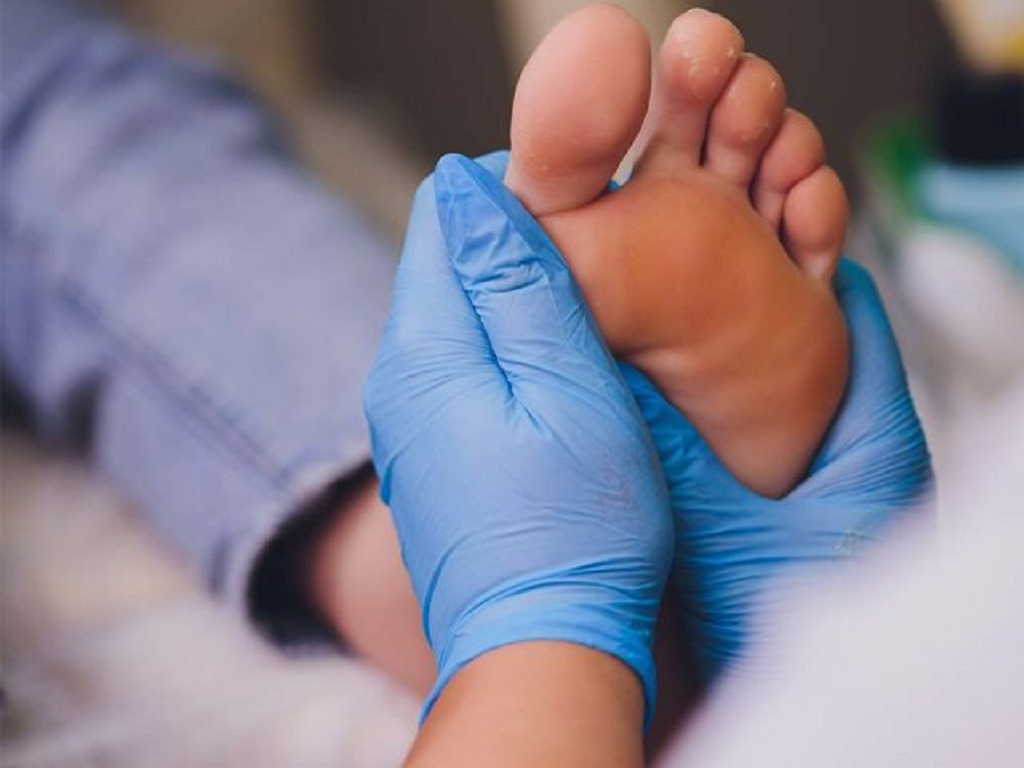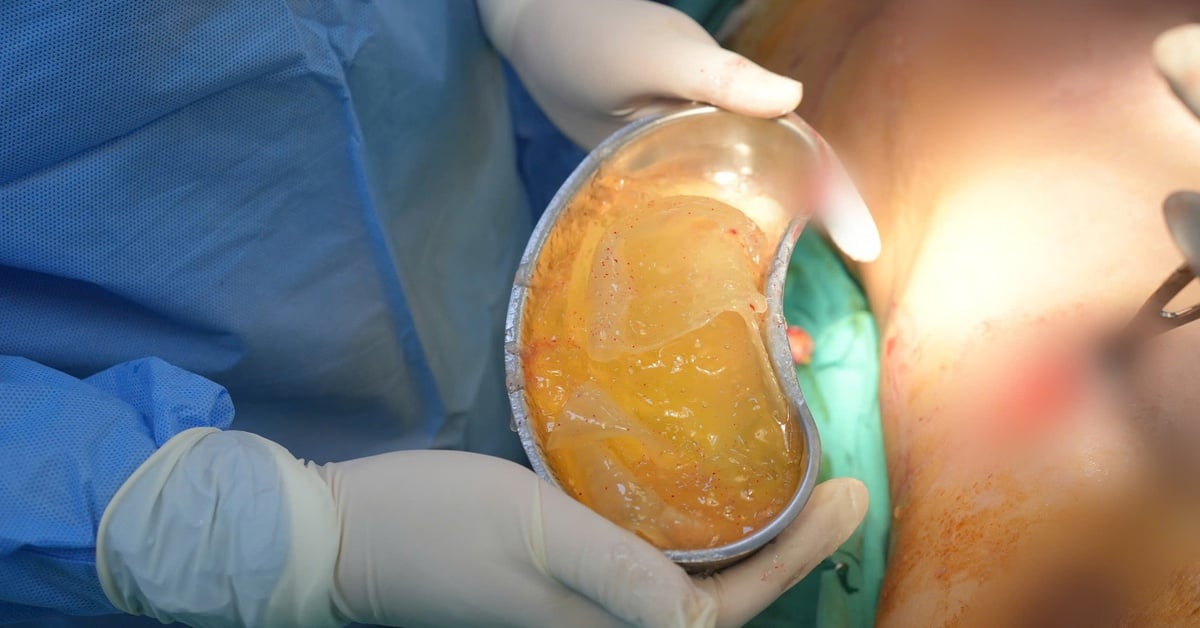Starting the day with health news, readers can also read more articles: It's sunny and then it rains, what should you do to avoid getting sick?; Warning signs of heart disease appear on the skin; What happens when you stay in an air-conditioned room for too long?...
Why can dehydration on hot days cause blood clots?
Hot summer days can cause heatstroke, excessive sweating, and dehydration. Severe dehydration can be dangerous, even leading to life-threatening blood clots.

Severe dehydration increases the risk of blood clots forming in the brain.
Dehydration is a condition in which the amount of water and minerals such as potassium and sodium in the body is severely reduced below the balance. In healthy people, under normal conditions, the body will excrete water through sweat, tears, breath, urine and feces. This amount of water is soon replenished by drinking or eating foods containing water.
For people who are sick, diarrhea and vomiting are symptoms that can easily cause the body to become dehydrated. Children and people over 60 years old are at high risk of dehydration.
Common symptoms of dehydration include thirst, decreased urination, dry skin, fatigue, dizziness, dry mouth, increased heart rate, and sunken cheeks and eyes. Not stopping there, medical experts warn that severe dehydration also makes the body susceptible to rare neurological diseases related to overheating such as cerebral venous thrombosis. The disease causes blood clots to form in the main veins of the brain. Readers can read more about this article on the health page on May 24 .
It's sunny and then it's raining, what should I do to avoid getting sick?
Changes in weather, such as going from sunny to rainy, can make people susceptible to illness.
As explained by Dr. Vikash Modi in an article published by Piedmont Healthcare System (India), people's bodies are accustomed to certain climatic environments and when the weather changes suddenly, the body tries to adapt. But sometimes the body has difficulty adjusting, which can cause illness.

Changes in weather, such as going from hot to rainy, can make many people susceptible to illness.
Many medical experts explain that: The weather itself is not the cause of people getting sick, but this change creates a favorable environment for pathogens and disease-causing viruses to develop.
According to the medical news site Narayana Health , most adults get the flu 2-4 times a year and children 5-7 times, and these illnesses almost coincide with the number of times the weather changes during the year. The immune system is affected by sudden changes in weather and temperature, and this is probably the reason for colds, coughs and headaches. The next content of this article will be on the health page on May 24.
Warning signs of heart disease appear on the skin
There are many symptoms that warn of cardiovascular problems in patients, from shortness of breath, rapid heartbeat, loss of appetite to feeling tired. Not only that, warning signs of heart disease also appear on the skin.
Some abnormalities in the body of a heart patient will manifest on the skin. That is why in many cases, a dermatologist is the first doctor to detect a patient with heart problems.

Swollen feet and legs can be a sign of heart disease
You should see a doctor as soon as possible if you see the following signs:
Blue or purple skin. This is a sign of blocked blood vessels. Because the blood vessels are blocked, blood cannot circulate normally. As a result, the skin becomes cold, lacks oxygen, and turns blue or pale.
If blood circulation is poor in a particular area, such as a finger or toe, early intervention is needed. Because if prolonged, the blockage of blood flow and lack of oxygen can cause the skin and tissue in that area to gradually die, according to the American Academy of Dermatology (AAD). Start your day with health news to see more of this article!
Source link


![[Photo] Special relics at the Vietnam Military History Museum associated with the heroic April 30th](https://vstatic.vietnam.vn/vietnam/resource/IMAGE/2025/4/3/a49d65b17b804e398de42bc2caba8368)
![[Photo] Moment of love: Myanmar people are moved to thank Vietnamese soldiers](https://vstatic.vietnam.vn/vietnam/resource/IMAGE/2025/4/3/9b2e07196eb14aa5aacb1bc9e067ae6f)
![[Photo] General Secretary To Lam receives Japanese Ambassador to Vietnam Ito Naoki](https://vstatic.vietnam.vn/vietnam/resource/IMAGE/2025/4/3/3a5d233bc09d4928ac9bfed97674be98)















![[Video] Hanoi strengthens food safety control at schools, tightens handling of violations](https://vstatic.vietnam.vn/vietnam/resource/IMAGE/2025/4/3/c9a2202768fb4d6dbd70deaf3f28979f)



































































Comment (0)